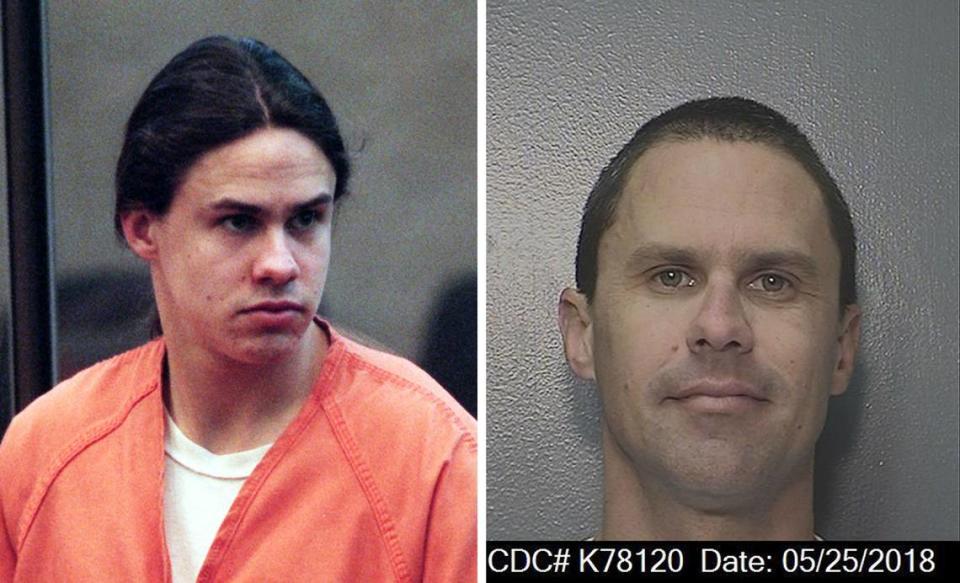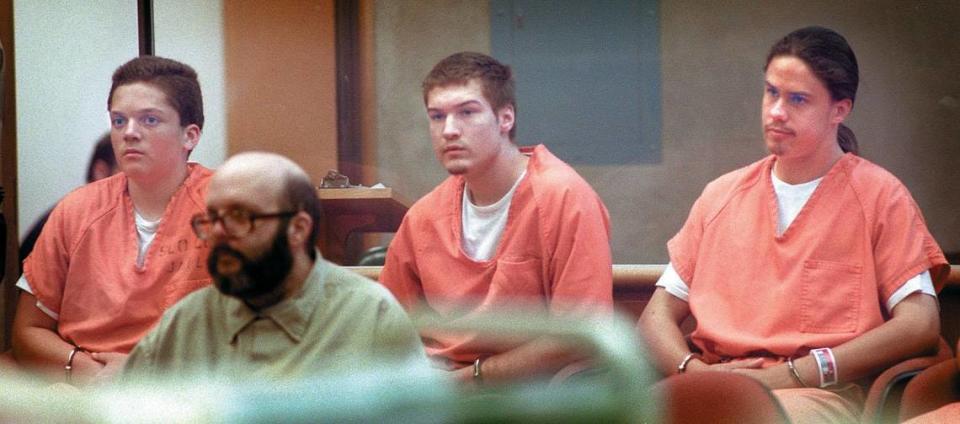SLO County man who murdered Elyse Pahler in satanic killing won’t be paroled, court rules
Editor’s note: This story contains disturbing descriptions of violence.
One of the men who lured and murdered an Arroyo Grande teenager in 1995 as part of a devil-worshipping ritual will not be paroled after all, the California Court of Appeal ruled Thursday.
The decision comes after about two years of legal proceedings reversing decisions as to whether 45-year-old Royce Casey poses a danger to the public.
Casey, who is currently serving a life sentence at Valley State Prison in Chowchilla for the 1995 murder of 15-year-old Elyse Pahler, was denied parole twice previously, in July 2016 and July 2019.
But in March 2021, the parole board found Casey suitable for parole. Gov. Gavin Newsom reversed the decision in July 2021, alleging Casey lacked insight into the severity of his crime.
Then, in June 2022, Superior Court Judge Craig Van Rooyen ruled to grant Casey’s writ of habeas corpus petition, an order that can grant release of an inmate if detention is found to be unlawful. This meant Casey was again suitable for parole.
But the California Office of the Attorney General appealed van Rooyen’s decision in July 2022. The Court of Appeal ultimately agreed with the governor.

Men murder teen as ‘sacrifice’ in ‘devil-worshipping ritual,’ court documents say
Casey was 17 years old, “infatuated with death metal music” and doing drugs when he two other teens lured Pahler to a remote location in Arroyo Grande on July 22, 1995, telling the girl they were going to smoke marijuana, court records show.
According to the records, Casey had discussed “sacrificing a virgin as part of a devil-worshipping ritual” with 17-year-old Jacob Delashmutt and Joe Fiorella, who was 15.
The three men had planned Pahler’s murder for several months.
When Pahler arrived at the location in a eucalyptus grove on the Nipomo Mesa, she was killed within 15 to 20 minutes, court records say. Delashmutt strangled Pahler with his belt before Fiorella stabbed her four to six times in the neck with a hunting knife.
Delashmutt then took the knife and stabbed her four to five more times in the neck, before Casey took the knife and stabbed her an additional four times in the back.
“As Pahler moaned on the ground,” court records say, “Casey stomped on the back of her neck.”
Court documents say Delashmutt started to pull off Pahler’s pants when it was clear she was dead, noting the boys had discussed having sex with her corpse.
Casey said they should leave instead, and the men buried Pahler in a shallow grave and left the area.
Eight months later, court documents say, Casey confessed his role in the crime to a clergyman. That clergyman contacted law enforcement, court records say, and Casey described the crime to detectives and led them to Pahler’s body.
Separate court documents describe the crime as “one of the most brutal and horrific murders in the history of San Luis Obispo County.”

Convicted murderer still ‘capable’ of violent crimes, appellate court rules
When Gov. Gavin Newsom reversed the parole board’s decision to grant parole suitability, he said “Casey’s discussion of the causative factors for his involvement in the crime are concerningly lacking.”
In response, Casey’s attorney, Charles Carbone, filed a petition of false imprisonment in San Luis Obispo Superior Court in September 2021, arguing that there was no evidence to support the governor’s decision to reverse the parole decision.
San Luis Obispo Superior Court Judge Craig van Rooyen agreed, granting Casey’s parole suitability and reversing Newsom’s decision.
“Casey has shown deep remorse and has discussed in depth why he killed Elyse Pahler,” van Rooyen said in his ruling. “He has not minimized his actions or his state of mind.”
According to court documents, Casey has long-term goals of working as a drug and alcohol counselor in the Los Angeles once released and has prepared a detailed parole plan that includes support letters from re-entry programs, potential employers and community members.
But the Court of Appeal ruled Casey’s explanation for his state of mind at the time of the crime — being “hurt and angry” — was not sufficient, and that Gov. Newsom was correct in his decision to deny parole.
“Almost everyone feels hurt and anger at some point in in their lives,” the ruling said. “Yet they do not plot for months to kill an innocent person and then execute the plan in a particularly brutal manner.”
The court added the hurt, anger, “a fascination with death metal music,” and marijuana use are typical behaviors of many teenagers, adding that these do not explain the brutal murder of a 15-year-old girl.
“Casey is relatively young and is physically capable of more violent crimes,” the ruling said. “Without insight, he also remains mentally capable of more violence.”


